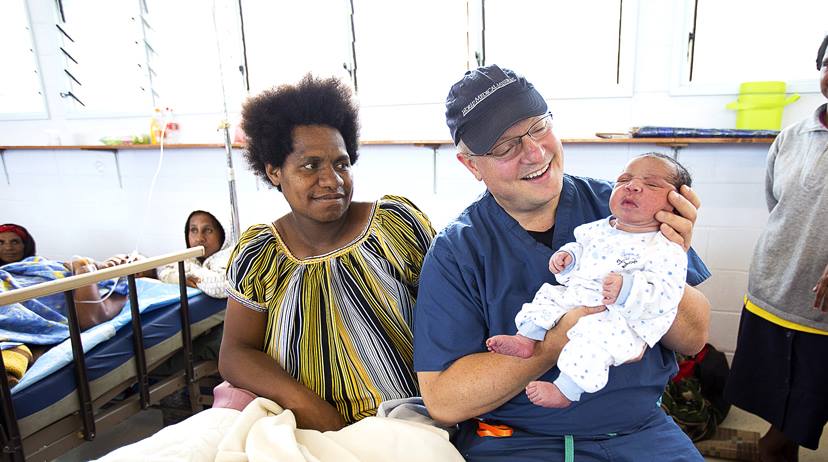My twelve-year-old Toyota pickup truck only has 63,000 miles on it, mostly because my commute for the past 12 years has been a half-mile from my house to my office. Then it was a mile from my office to the hospital. Then a half-mile back home from the hospital. Typically I would drive about 2 miles a day. I filled the gas tank of my truck once a month, and generally lived my life inside a one-mile radius.
Then, last January, after selling my ob/gyn practice, my commute changed from a half-mile to thousands of miles. This coming January I will once more commute to West Africa, to teach African surgeons how to do the surgeries that I do, and to help them use their medical and surgical skills as their ministry to their patients.
 If you are reading this, then you have likely helped to support me with these endeavors, and I am extremely grateful to you. This year I am scheduled to make at least three, and possibly four extended trips to three (or four) different hospitals in West and Central Africa. Inside my luggage for the first trip are three complete surgical trays, two for doing cesarean sections, and one for doing abdominal and pelvic surgery. These are brand new German stainless steel surgical instruments, of the highest quality, that will be used for decades.
If you are reading this, then you have likely helped to support me with these endeavors, and I am extremely grateful to you. This year I am scheduled to make at least three, and possibly four extended trips to three (or four) different hospitals in West and Central Africa. Inside my luggage for the first trip are three complete surgical trays, two for doing cesarean sections, and one for doing abdominal and pelvic surgery. These are brand new German stainless steel surgical instruments, of the highest quality, that will be used for decades.
I'm extremely grateful to each of you who have helped me to go and to serve and to teach. Know that you are making a difference in the world, one patient at a time. The education that I will provide to these doctors, and the surgical instruments that I will bring, will continue to serve these communities long after I have left.
If you would like to be a part of my team, you can follow the directions on the left side of this blog. I would welcome you to vicariously be a part of my work in developing countries.
Thank you, and blessings to each of you, and Merry Christmas!
Then, last January, after selling my ob/gyn practice, my commute changed from a half-mile to thousands of miles. This coming January I will once more commute to West Africa, to teach African surgeons how to do the surgeries that I do, and to help them use their medical and surgical skills as their ministry to their patients.
 If you are reading this, then you have likely helped to support me with these endeavors, and I am extremely grateful to you. This year I am scheduled to make at least three, and possibly four extended trips to three (or four) different hospitals in West and Central Africa. Inside my luggage for the first trip are three complete surgical trays, two for doing cesarean sections, and one for doing abdominal and pelvic surgery. These are brand new German stainless steel surgical instruments, of the highest quality, that will be used for decades.
If you are reading this, then you have likely helped to support me with these endeavors, and I am extremely grateful to you. This year I am scheduled to make at least three, and possibly four extended trips to three (or four) different hospitals in West and Central Africa. Inside my luggage for the first trip are three complete surgical trays, two for doing cesarean sections, and one for doing abdominal and pelvic surgery. These are brand new German stainless steel surgical instruments, of the highest quality, that will be used for decades. I'm extremely grateful to each of you who have helped me to go and to serve and to teach. Know that you are making a difference in the world, one patient at a time. The education that I will provide to these doctors, and the surgical instruments that I will bring, will continue to serve these communities long after I have left.
If you would like to be a part of my team, you can follow the directions on the left side of this blog. I would welcome you to vicariously be a part of my work in developing countries.
Thank you, and blessings to each of you, and Merry Christmas!









